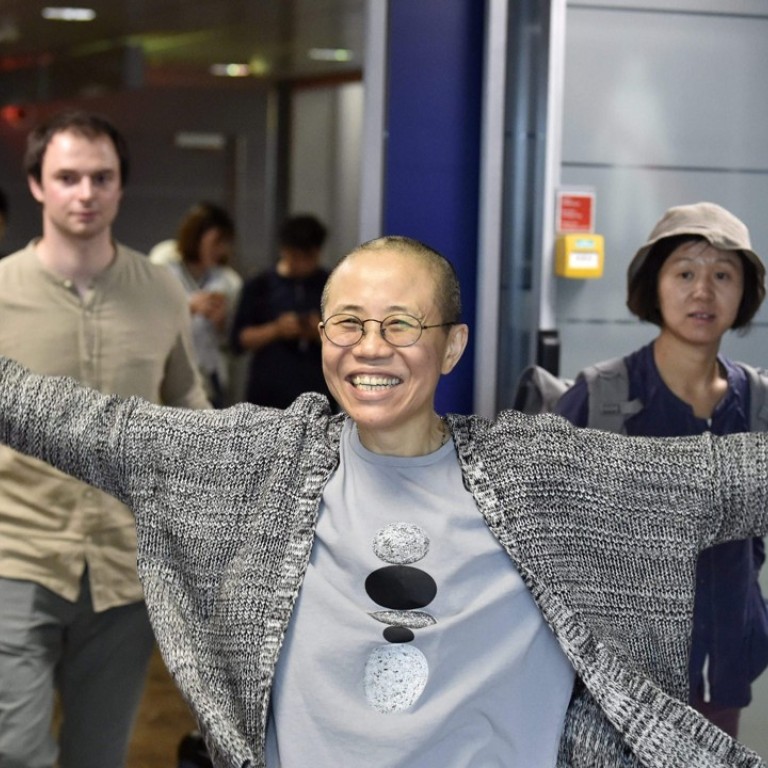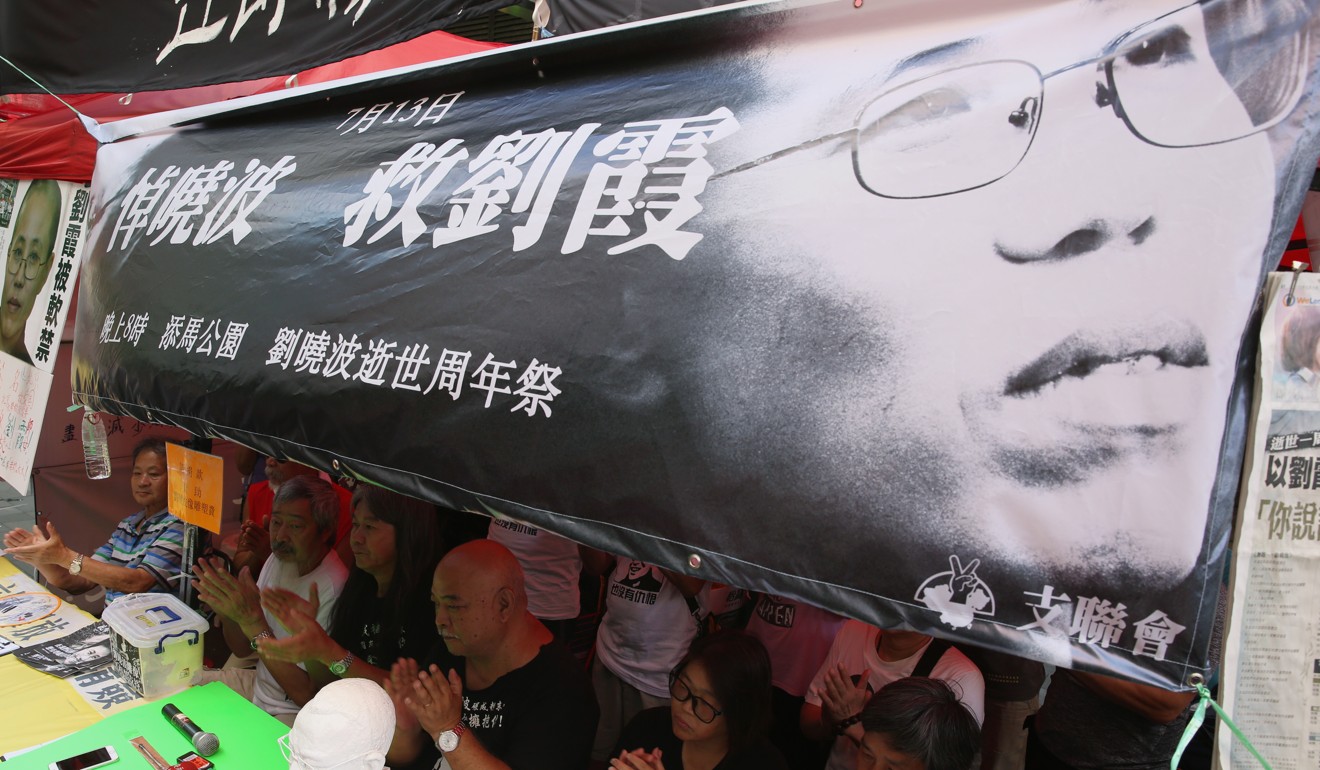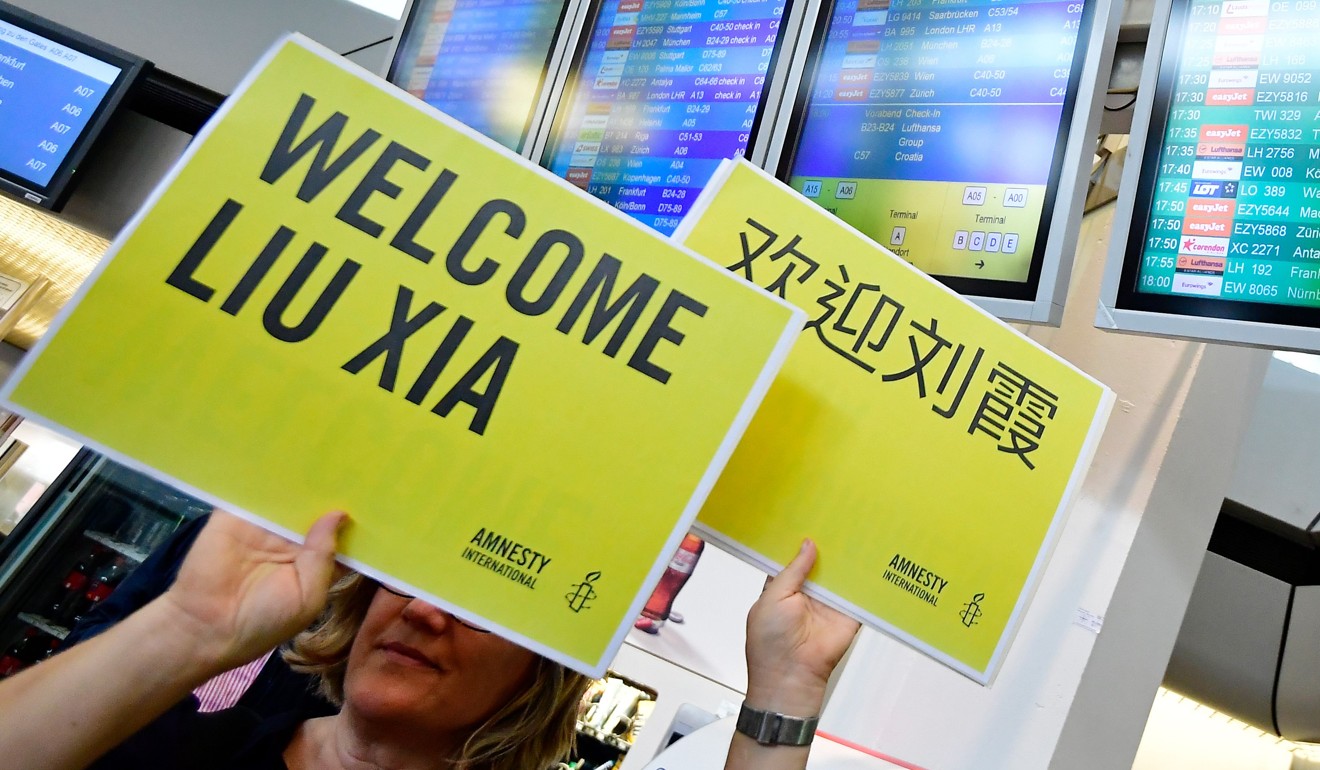
Welcome release of Liu Xia comes at a time when China needs friends
With the widow of Liu Xiaobo now in Germany, Beijing must think again on how it handles rights activists amid global tensions and a growing US trade war
The release of an individual has rarely been met with as much humanitarian acclaim as the freedom from house arrest of Liu Xia, widow of rights dissident and Nobel Peace Prize winner Liu Xiaobo – and understandably so.
The Chinese authorities had restricted the movement of the 57-year-old poet and artist for eight years without charging her with any wrongdoing.
Her “crime”, apparently, was to be married to Liu Xiaobo, regarded as a criminal whose peace prize deeply angered Beijing, which saw it as gratuitous meddling in its internal affairs.
He died in captivity a year ago tomorrow of liver cancer, while serving an 11-year sentence for incitement of subversion as co-author of the now historic Charter 08.
This is a document signed by hundreds of intellectuals calling on the Communist Party to respect human rights, uphold the rule of law and introduce democratic reforms.
Liu Xia’s ordeal of confinement under constant surveillance, which began with the peace prize award after her husband’s conviction and jailing, took a relentless physical and emotional toll that left her with clinical depression.
Officially, according to Beijing, Liu Xia had gone to Germany to “treat her illness according to her wishes”.
But it was probably not mere coincidence that news of her release came while Premier Li Keqiang was in Germany.
It has also been reported that Chancellor Angela Merkel received a positive response when she raised Liu’s case with President Xi Jinping.

Some people say Beijing let her go to Germany because both countries face the threat of a trade war with the United States.
Her release certainly will not do any harm to China’s desire to build better ties with Germany and form a united front.
The trade dispute may have played a part, but Germany, a strong advocate for human rights, has led the diplomatic campaign for Liu Xia’s release without making a big public issue of it.
As a result, her release has been quietly on the cards. Beijing’s overtures to Berlin provided a positive context.
None of that affects the basic reason Liu Xia’s release should be warmly welcomed – that after eight years of house arrest no charge had been brought against her.
Her treatment had become unwanted baggage and a diplomatic and public relations liability for Beijing.

The approaching first anniversary of her husband’s death may have prompted the termination of the egregious abuse of the human rights he stood for.
It should also prompt a rethink about how China handles other rights activists.
Every country has its laws. Whether and where they should draw the line on dissent may be debatable.
But restricting individual freedom of movement without good reason can only harm China’s image around the world, just when it needs friends more than ever regardless of conviction, creed or colour.

